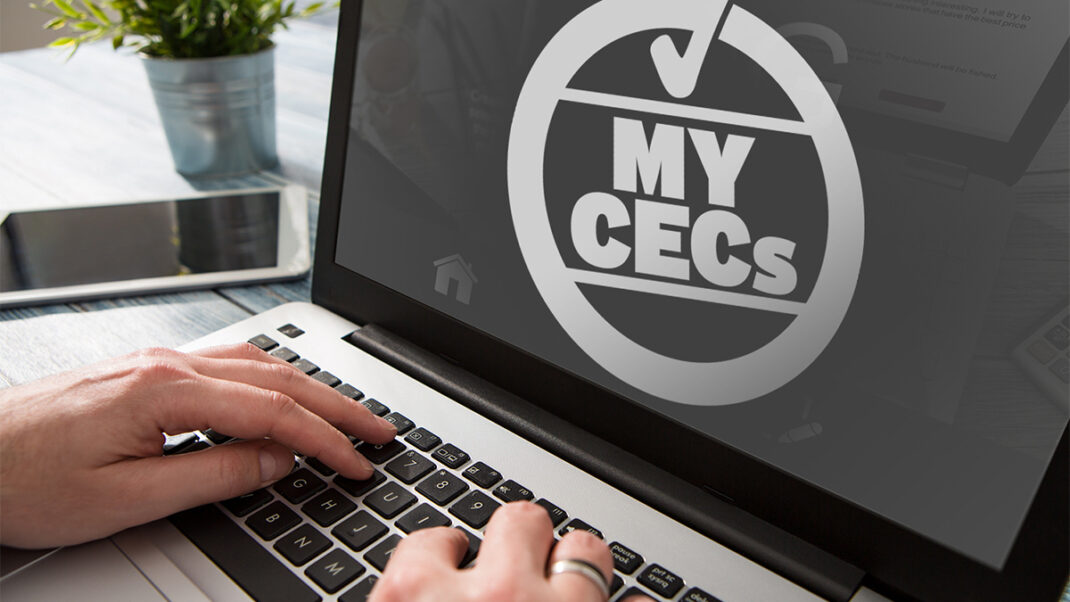Health Coaching: Starting Your Business
We asked expert coaches what it takes to succeed. Check out how these pros made it happen.

Are you excited about helping people transform their lives through health coaching? You’ve educated yourself, earned certifications and gained practical experience. Now you’re ready to start your business, so what’s next?
There’s no scarcity of potential clients who’d like to improve their health. But because health coaching is a relatively new career, there is no set blueprint on how to start a business in this field. What’s more, you may have to educate people about exactly what a health coach does.
A logical starting point is to ask established health coaches how they launched their businesses and are running them today. So use these insights from experts as a springboard to your success.
Defining Health Coaching

“One challenge is that people aren’t really sure what a health coach is and/or how much value a health coach can bring,” says Lee Jordan, MS, ACE-certified health coach and behavior change specialist in Jacksonville Beach, Florida.
This may be changing, though, says Jessica Matthews, DBH, MS, NBC-HWC, assistant professor and program director of the Master of Kinesiology in Integrative Wellness Program at Point Loma Nazarene University in San Diego and senior adviser for the American Council on Exercise. “I think there is more general awareness of the health coach profession,” says Matthews, who has worked in private practice and with patients in clinical settings. “However, there is still an opportunity to provide both the public and other health, wellness and exercise professionals with a greater understanding of the specific role, knowledge, skills and scope of a well-qualified, credentialed health coach.”
Start by asking yourself this: Do you want to offer only health coaching, or would you prefer to add it to personal training and/or group exercise services you already provide? Either way, you must be able to clearly answer the most common question: What’s the difference between a personal trainer and a health coach?
Personal trainers focus on providing fitness guidance to individuals or small groups. Health coaches apply a big-picture approach to everything that can improve a client’s wellness over the long term (see “Defining Health Coaching,” below, for more).
“Over the last 5 years, I’ve noticed that more people are receptive to the idea of health coaching, especially those who have started over several times in an effort to reach their health and fitness goals on their own,” says Andrea Stewart Roa, MS. Stewart Roa is a Dr. Sears–certified health coach and owner of Compliments, a holistic wellness company in Plano, Texas.
CLARIFYING HEALTH COACHING
The International Consortium for Health & Wellness Coaching puts it this way: “Health and wellness coaches partner with clients seeking self-directed, lasting changes, aligned with their values, which promote health and wellness and, thereby, enhance well-being.” Also, coaches must have “unconditional positive regard for their clients and a belief in their capacity for change,” honor the fact that “each client is an expert on his or her life,” and ensure “that all interactions are respectful and non-judgmental“ (ICHWC 2019).
A chart from Health Coaches International draws distinctions between coaching and training:
- Personal trainers prescribe exercise programs, instruct fitness skills, motivate in sessions, monitor performance and advise on healthy habits.
- Health coaches find meaningfulness in decisions and actions, connect intent with outcome, develop self-efficacy, guide through barriers/limitations, widen comfort zones, and focus on whole-person change, commencing in thoughts and how they affect feelings and actions (McMaster 2017).
Stacy Rae Mednick of OC Fitness Mama features a video on her website explaining what health coaching is. You may want to do the same or feature testimonials showing how clients have benefited from coaching.
See also: Health and Wellness Coaching: The New Fitness Career?
Identifying Your Ideal Client

What group of people do you want to help? “When building a health coaching business, you must define your niche clientele,” says Jordan. Business owners typically use an outside-in process to define a niche: Examine the market, find pain points, and structure your offering to fix that pain. “I suggest an inside-out way,” Jordan says. “Ask yourself: ‘What group do I feel called to serve?’ Examine yourself and listen. What do you hear?”
Next, create a “client persona,” and build it out by identifying the unique behaviors and experiences of the people this persona represents. “What beliefs about themselves do they share?” Jordan asks. “Do they have any unspoken fears, desires or secrets? Where do they hang out?” Building a client persona will help you refine your business development strategy and zero in on your “ideal” client.
EXAMPLES OF “IDEAL” CLIENTS
- Jordan specializes in coaching people who are 100–300 pounds overweight. They are seeking sustainable change and often have additional health challenges, such as diabetes.
- John Sinclair, certified personal trainer and health coach and founder of Authentic Health Coaching in Sunrise, Florida, works with athletes.
- Stacy Rae Mednick, owner and health coach at OC Fitness Mama in Costa Mesa, California, targets women who are “fit & fabulous at 40 and beyond.”
- Jeff Popoff, founder of the online business The Healthy Executive, divides his time between San Francisco and the Pacific Ocean (on a boat) and works exclusively with entrepreneurs, business owners and senior executives.
Other health coaches cast a wider net. “I coach all types of clients,” says Deniese Kragel, certified personal trainer and wellness coach for HealthFit (a part of Sarasota Memorial Hospital in Florida) and her own business, Healthy at Home. “I coach doctors, nurses, athletes, teenagers, kids, girls with eating disorders and women in menopause, and I mentor younger women in this field of work.”
Finding Clients
Once you know which clients you’d like to coach, how do you attract them? Consider the following strategies:
TARGET CURRENT CLIENTS
It’s easier to sell to people who’ve bought from you before. “I picked up many health coaching clients from my small-group trainings and fitness classes,” says Stewart Roa. “Building trust and credibility is important, and oftentimes this [rapport] has already been established with fitness clients, so it’s just a matter of showing them the additional benefits they gain by adding the coaching service,” she adds.
GET INVOLVED IN YOUR COMMUNITY
“In the beginning, I did a lot of networking and advertising by joining the local Chamber of Commerce, donating my services for silent auction items at fundraising events, advertising in small community [newspapers] and offering school sponsorships,” says Stewart Roa. “Now I have a full roster of clients, and most of my new clients are by word of mouth and personal referrals.”
Mednick has had a similar experience. “I belong to a women’s networking group that I receive leads and referrals from,” she says. “This has helped build my business from a grass-roots level.”
MARKET ONLINE
Kelsey Graham, MS, health coach and founder of KGB Wellness and professor at San Diego Mesa College, finds clients primarily through Yelp and her business website. “Prospective clients search health coaches in the area, and my business often pops up. Other than that, clients come to me through word of mouth from former clients or healthcare providers.”
Other coaches source clients through Facebook posts and ads and Instagram posts.
SEEK PHYSICIAN REFERRALS
“The majority of my clients come to me via word of mouth and physician referrals,” says Jordan. “I focus on developing relationships.” Jordan doesn’t lead by offering services. He says, “I structure my conversations around solving problems that physicians and their clients face.”
WORK FOR A COMPANY THAT HAS CLIENTS
Pam Staver-Ramey, practice specialist and National Diabetes Prevention Program (DPP) master trainer at Kaiser Permanente in Kennesaw, Georgia, initially found it challenging to find health coaching clients. “I had my health coach certification for a year with no clue how to monetize my new skill set,” she says. While she was teaching fitness and stress reduction at Kaiser Permanente, however, the company selected her to train as a DPP coach.
Determining Price Structures
Knowing what to charge for health coaching services can be challenging. Hourly rates and annual pay vary substantially depending on location, professional track record and specific services offered. In 2013, the American Council on Exercise surveyed certified professionals and found that part-timers earned an average of $33 per hour, while full-timers earned an average of $51,219 per year (ACE 2017). These figures are 8 years old, so it stands to reason that coaches earn more today.
But how much should you charge? There is no single correct answer. Here’s a snapshot from 2019 (not long before the pandemic):
- Sinclair charges $100 per hour.
- Kragel charges $125 per hour for home visits. The hospital where she coaches charges clients $80 an hour.
- Graham charges $150 for an initial one-on-one hourlong consult. She often conducts 30-minute sessions after the initial meeting. These run $70 per half-hour.
- Health coach Deon Roberts of Shift Fitness online coaching in Portland, Oregon, says building a habit with clients is essential. “To do that, I offer a 12-week online coaching plan. I charge $1,000 for the 12 weeks. They get weekly check-ins, photo check-ins, weekly meal plan adjustments and 24/7 counseling with that.”
Pay Periods

Many health coaches don’t sell a single session. Here are examples of time periods coaches charge for:
MONTHLY
“We map out 1 month of sessions, and the client pays in full prior to the first call,” says ACE-certified health coach Megan Merchant, MS, owner/educator, Dramatic Wellness in Albuquerque, New Mexico, and adjunct faculty member in the Department of Health, Exercise and Sports Sciences at the University of New Mexico. “At the month’s end, I draft a receipt that reflects actual client activity and any adjusted payments, including cancellations or added time.”
THREE-MONTH INCREMENTS
“I typically require an initial 3-month commitment for new clients, whether we meet once, twice or three times a week,” says Stewart Roa. “I bill the initial 3 months at once or month to month with a credit card on file. After the initial 3 months, sessions are scheduled and billed month to month, requiring 30 days’ notice to cancel.”
YEARLONG COMMITMENT
“My only offer is a 1-year coaching package payable upfront,” says Popoff. “This amount of time is necessary to undo unhealthy patterns and create healthy habits that will last a lifetime. Clients who are committed to making meaningful changes have no problem with the upfront fee. I’ve learned that those who want to ‘pay as they go’ are simply not ready to commit 100% to the simple but hard process of changing their habits.”
Jordan also requires a yearlong commitment, owing to the amount of weight clients need to lose. “My physician-endorsed coaching program is about achieving the extraordinary through the ordinary done daily. It takes time, a year at least, to establish momentum and new sustainable habits,” he explains. “Also, from a business perspective, client acquisition is costly and time-consuming, as is the onboarding of new clients. Therefore, a 1-year contract provides a business benefit.”
FLEXIBLE COSTS
“I offer every customer a free 15-minute phone consultation to see if our needs align,” says Merchant. “We consult in this order: client goals, service match, time availability match, service fee match,” she explains. Her advice to new coaches? “Know your base costs so you can quickly generate a price estimate over the phone.” Cost examples include performing client evaluations; mileage and travel expenses; and hard-copy resources for groups. You also need to know your package rates for multiple sessions or classes.
Communicating With Clients
Health coaches work in person, via video chat, online or by phone.
IN PERSON
Stewart Roa primarily coaches in person but will combine remote coaching with in-person sessions. “I’ve tried going completely remote, but my clients expressed a preference for in-person sessions,” she says. “When I remotely coach clients, it is typically when they are away on business travel or their schedule just doesn’t allow much time to accommodate an in-person session.”
ONLINE
“I use Zoom to virtually chat with clients,” says Graham. “It is a free, easy and convenient resource for both me and my clients. It allows us to set a meeting time online, with both video and audio options.”
BY PHONE
“My most popular one-on-one coaching service has been the weekly 30-minute phone call option,” says Merchant. “Clients have very few barriers toward achieving this type of appointment, and 30 minutes per week allows time for the client to ask questions, share progress and request new information. Video chat is an option, but most clients still prefer the familiarity and convenience of phones.”
BY PHONE, ONLINE OR VIA APPS
Ninety percent of Popoff’s coaching happens via phone and online assessment tools and apps; 10% is live—either one-on-one or in on-site corporate workshops. Jordan also coaches remotely for the most part: “With very few exceptions, my health coaching is done leveraging text, voice and apps,” he says.
USING A RANGE OF METHODS
“My coaching is done in person at my studio; by phone, FaceTime, Marco Polo or Skype; online; and by email,” says Mednick. “I offer all of these approaches to see what will be the best fit for the client.“
Keeping Clients Engaged

Successful coaches agree that it’s important to touch base with clients between sessions. Here are the methods they prefer:
“Email is my favorite mode for checking in on clients,” says Merchant. “Emails have plentiful space for long replies and can be saved as drafts as you revise or think of strategies to add between calls. When a client receives a message from me, it has a specific purpose that will enhance the client’s life and be worth the time spent reading it.”
TEXTING
“I text clients throughout the day to check in with them and ask how they are doing,” says Mednick. “Often I ask if they are drinking their water, getting vertical (standing more) and eating every 2.5–3 hours. Sometimes I might send them a fun Bitmoji that cheers them on.”
FACEBOOK GROUPS
Stewart Roa uses private Facebook groups for health challenges and provides clients access to a private blog and health library.
APPS
“Between sessions I post comments and feedback in nutrition and fitness apps or devices where my client and I have ‘friended’ each other,” says Popoff. “I also text clients who are dealing with specific issues.”
Sinclair co-created the website MyTakeSeven.com to help coaching clients when they aren’t with him. “The website helps them master movement by introducing physical activity in 7-minute increments throughout the day.”
Stewart Roa keeps clients engaged with motivational texts and email blasts. “I utilize a platform called Practice Better. It allows me to keep clients engaged with task reminders and create custom forms and short courses for them to complete.”
24/7 SUPPORT
“I find frequent contacts are necessary to the building of new habits, and [these contacts] further trust and build a relationship,” says Jordan. “I give multiple live touches per day via text. And I am available and work with my clients 24/7, 365 days a year, unless I am asleep.”
Administration
While health coaches love helping clients, they don’t always love record keeping, bookkeeping and accounting. Established coaches reveal how they handle these essentials:
- “I have found that FreshBooks, Square and PayPal work well to meet the bookkeeping and accounting needs of a solopreneur,” says Stewart Roa. “Plus, of all the systems I’ve tried, Practice Better is the most robust and affordable one I’ve found for record keeping and managing my practice as an independent health coach.”
- Mednick uses a software program called Zen Planner. “It helps with scheduling, billing, reports and other business things.” A CPA does her bookkeeping, and she uses Paychex for her payroll.
- Popoff bills private clients via PayPal and corporate clients via invoice and wire transfer.
- Sinclair uses an “old-school” ledger and pencil. “I record everything at the end of the day, then transfer my record keeping into a business spreadsheet on the computer to show my profit and loss reports.”
Other Money-Making Opportunities
In addition to giving coaching sessions, you can develop other streams of income as a health coach. Consider creating e-books and blogs, and explore content development, public speaking, podcasts, writing, consulting or serving as an industry subject-matter expert. The more diversified your business model is, the more opportunities you’ll have.
“I have created health coaching curriculum for the Institute of Medicine and served as a consultant for government ministries,” Sinclair says. “I have written books and started websites and do charity events, podcasts, blogs and public-speaking engagements.” He has also authored articles, taken part in research and presented at conferences all over the world, and he consults for various companies that offer products and services.
See also: Nutrition Coaching: A Primer for Health and Fitness Professionals
Be Realistic
While getting paid to help people improve their health sounds appealing, you will need time to build up your clientele. Like any new business, it won’t pay the bills at first.
“After becoming a health coach, I was able to add an additional stream of revenue and increase my income by 30%,” says Stewart Roa. “However, clients do not flock to you after you obtain training and certification. Market penetration is difficult, and finding the right avenue to introduce the service and its value can be challenging. You have to work at it.”
Tips for Success

Launch your coaching career with strategies from successful health coaches:
IDENTIFY WITH YOUR CLIENTS
“You need to specialize and understand your prospective clients very deeply,” says Jeff Popoff, founder of the online business The Healthy Executive. “It really helps if you are authentically ‘one of their tribe.’ If you try to be everything to everyone, you will wind up being nothing to nobody.”
SHARE YOUR EXPERIENCES
“I am a mother of three boys,” says Stacy Rae Mednick, owner and health coach at OC Fitness Mama. “I have had my own health issues and injuries as well as other life experiences that I can draw from to help coach clients. Sharing some experience, strength and hope with clients when it is appropriate goes a long way to open up the conversation with them.”
ASK FOR HELP
Seek out free support services for new businesses in your area, advises ACE-certified health coach Megan Merchant, MS, owner/educator, Dramatic Wellness in Albuquerque, New Mexico. “Small Business Development Centers often provide a checklist and assistance to guide you through obtaining licenses, permits, and required federal and state tax accounts.” (See sba.gov to find a center or learn about business courses.)
Once you secure your business paperwork, request a business mentor from Service Core of Retired Executives (SCORE), score.org. “A SCORE expert will mentor you by answering specific questions about sales, marketing, loan acquisition, branding and record keeping,” says Merchant.
WORK ON THE BUSINESS, NOT JUST IN THE BUSINESS
“To become successful, you must focus time on ‘running’ a business,” says Andrea Stewart Roa, MS, a health coach in Plano, Texas. “You need to understand privacy practices, collections, outsourcing and customer service and know how to handle refunds, taxes, disgruntled customers and more. You also need to think about growth and how you will expand as time goes by.”
CONTINUE YOUR HEALTH COACHING EDUCATION
“As health care evolves, health coaching will continue to gain traction,” predicts Amber Long, MEd, ACE-certified health coach and executive director of wellness and recreation services at the University of Colorado, Denver. “Continue to learn, network, and navigate relationships and opportunities with partners, colleagues and organizations. Your certification is just the beginning. Continuing education will help you grow and increase your overall value in the market.”
A Healthy Future
As the benefits of health coaching become better publicized, consumer demand for the service will likely rise. “Health coaching is an untapped market. I highly suggest evolving your business into it,” says Sinclair.
“I’ve been able to fill unused hours on my schedule with health coaching,” says Stewart Roa. “Because of this, I reduced some fitness training hours. I am in my late 40s and have been able to give my body a break from the physical demands of personal and group training. Plus, I have more scheduling flexibility and better control of my time now.”
“Health and wellness coaching has completed my business,” says Kragel. “I never want to retire, my income increases yearly, and I get paid to do what I love.”
Updated on July 15, 2021.
References
ACE (American Council on Exercise). 2017. Becoming a Health Coach. A career guide for a growing field. Accessed Mar. 19, 2019: https://acewebcontent.azureedge.net/assetportfoliodownloads/CareerGuide-HC.pdf.
ICHWC (International Consortium for Health & Wellness Coaching). 2019. Welcome. Accessed Mar. 4, 2019: ichwc.org.
McMaster, K. 2017. Health coach or personal trainer—Is there a difference? Health Coaches International. Accessed Mar. 11, 2019: healthcoachesinternational.com/articles/health-coach-personal-trainer-difference.






